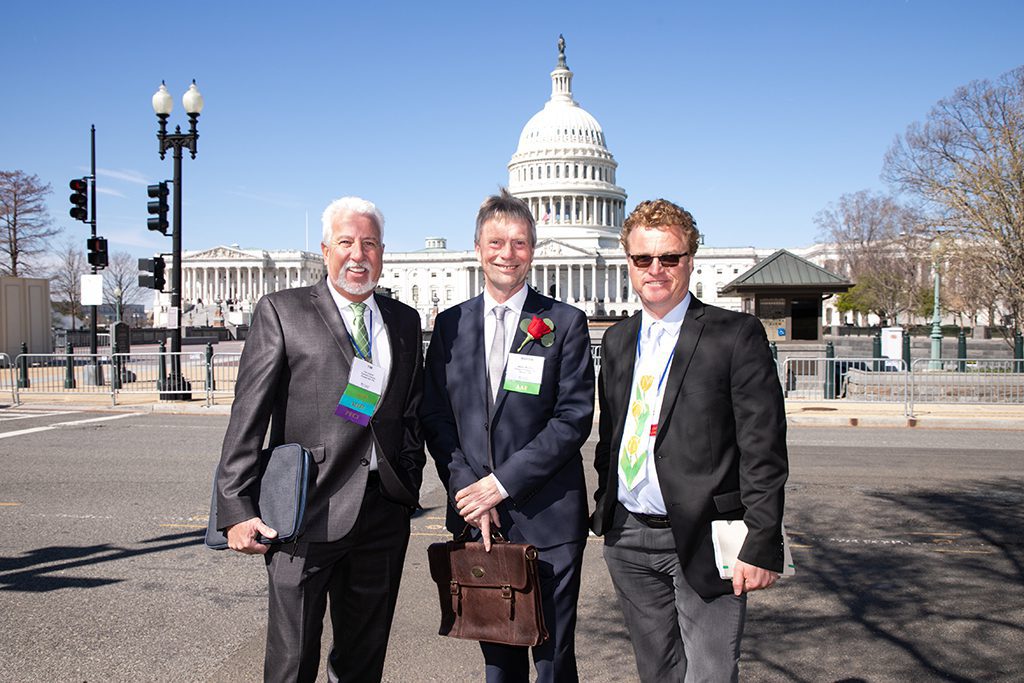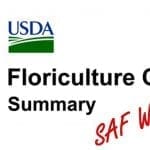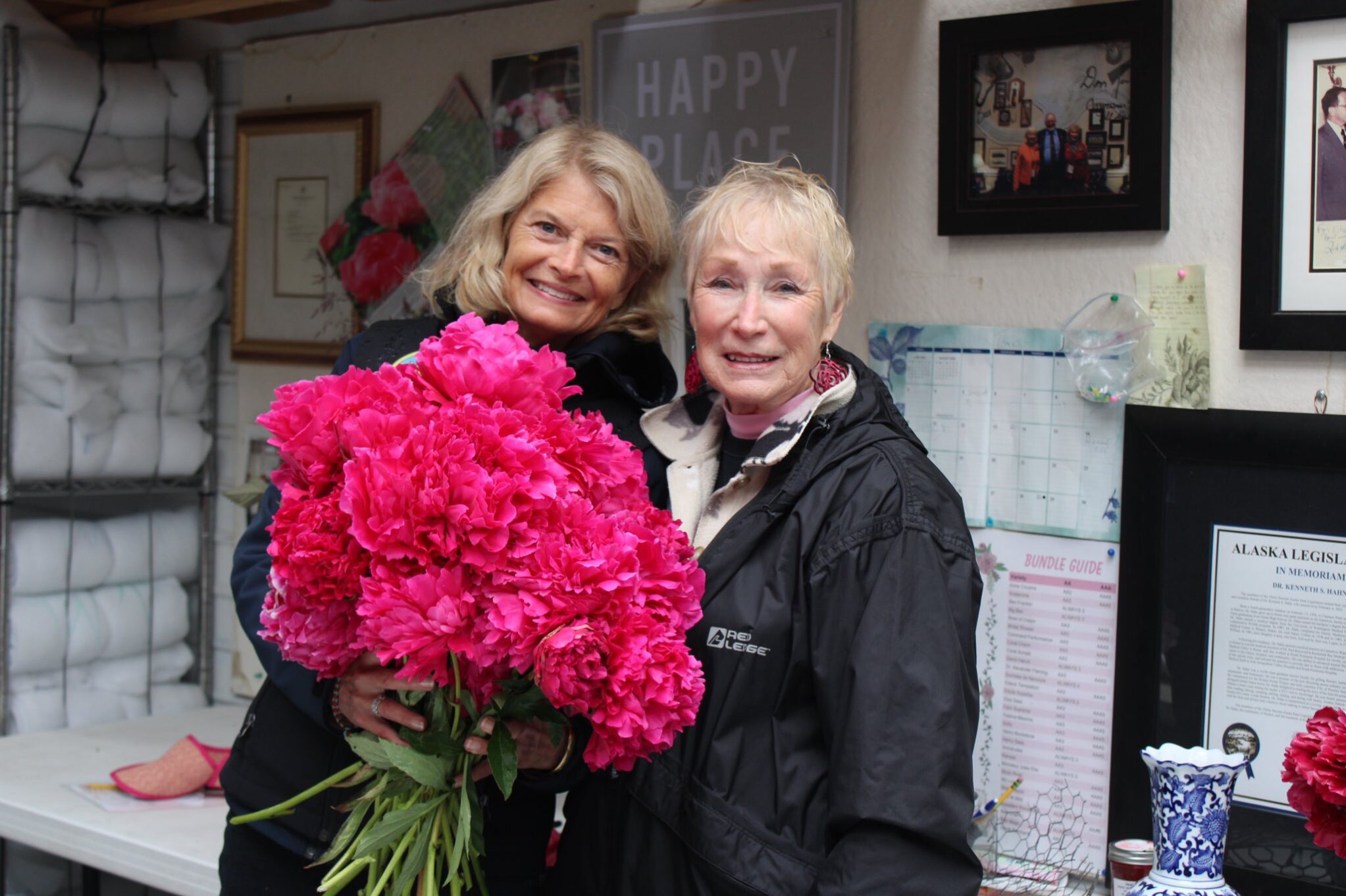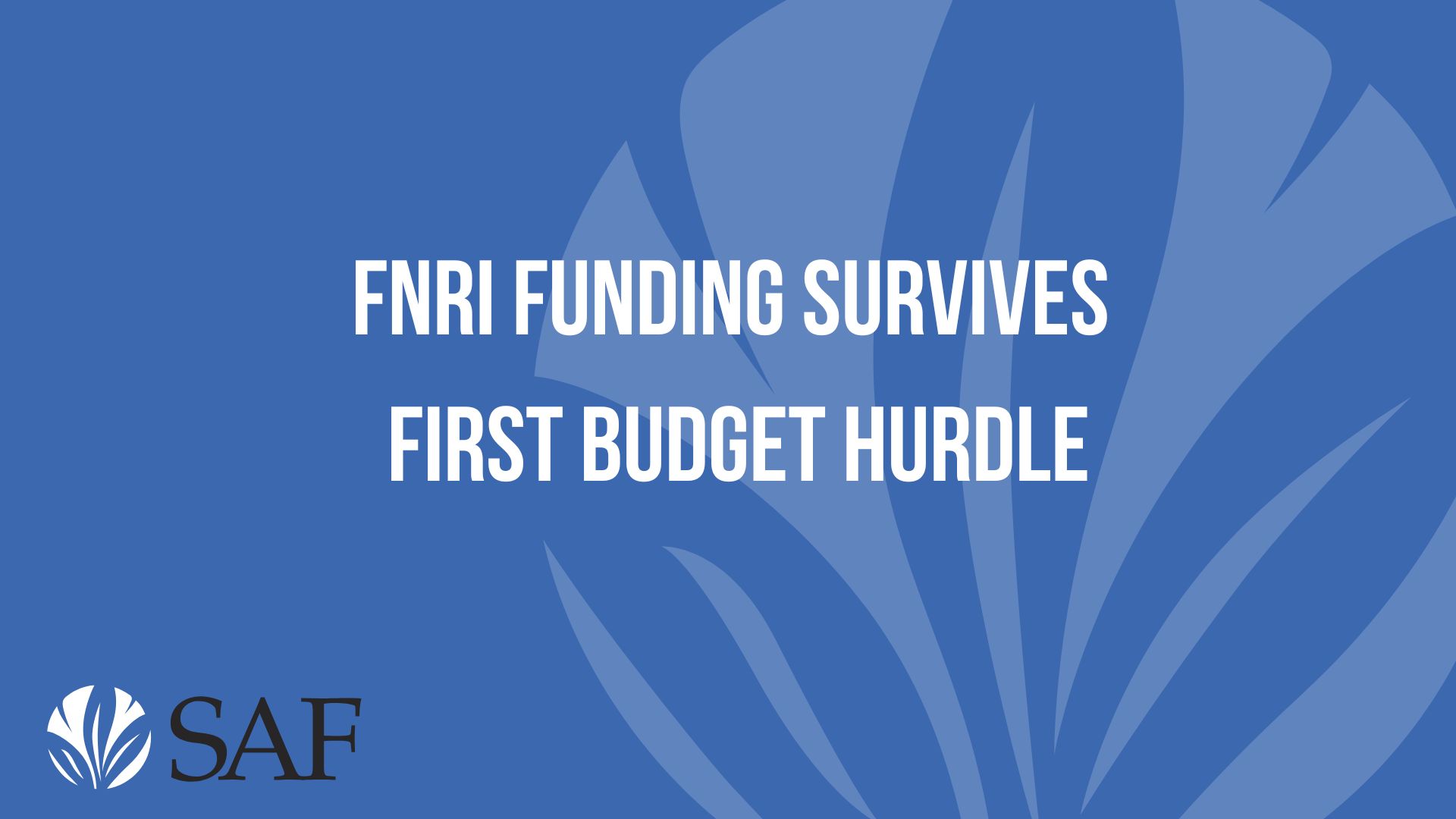
Tim Farrell, AIFD, CFD, PFCI, of Farrell’s Florist in Drexel Hill, Pennsylvania; Martin Meskers, AAF, of Oregon Flowers in Aurora, Oregon; and Rodi Groot, AAF, of Sun Valley Floral Farms in Oxnard, California at last year’s Congressional Action Days.
The floral industry will have an additional $1 million annually for floriculture research, thanks to SAF’s advocacy efforts.
SAF’s members pushed for the additional funding for the Floriculture & Nursery Research Initiative (FNRI) in early 2022 with legislators during the association’s Congressional Action Days. The increase is in addition to the $5.4 million annually going toward research projects in the current program.
“FNRI is a vital part of SAF’s efforts to respond to pest and disease problems, tackle the challenges of climate change, enhance the efficiency of production practices, develop and promote sustainable growing practices, and broaden the message of the positive environmental and social impact of our crops,” says SAF Senior Lobbyist Joe Bischoff.
The strategy to seek the increase came together in late 2021, following visits to growers who had expressed the need for technological innovation to address farm labor and productivity challenges. CAD attendees last March talked to congressional members and their staff about the need for expanded research into mechanization, including drone technology. SAF made official appropriations requests following CAD and continued to make the case for the funding with key congressional leaders. As part of this effort, SAF collaborated with AmericanHort on advocacy outreach.
“Because of this increase, FNRI will be able to broaden its scope and invest research into new technologies, such as Unmanned Aircraft Systems (UAS),” says Bischoff. The potential of this technology could help in a variety of aspects, including saving on labor for scouting and pesticide application, lowering pesticide volumes because of better targeting, significantly reducing worker exposure to pesticides, and reducing soil compaction and erosion with less foot traffic in the fields.
Bischoff is quick to point out the role of SAF’s political action committee in influencing a positive outcome for the industry. More than $75,000 was raised for SAFPAC in the 2021-2022 cycle — the largest amount in the last five cycles — money that enabled SAF to develop more touch points with key congressional appropriators and their staffs, including on the appropriations committees.
“By supporting members who are inclined to be helpful on our issues, we build stronger personal relationships and they better understand our priorities,” Bischoff says. “This puts us in the best position for advocacy wins. The House and Senate Appropriations Committees have been particular areas of focus for the SAFPAC and our results in the last five years reflect that.”
But with a new Congress and new leadership in the House, there is still more work to do to meet the needs of the industry, including maintaining funding for FNRI, renewing the Generalized System of Preferences to eliminate the 6.8% tariff on roses, and finding a workable system for ag labor, among other issues. Join your peers to tell legislators what your business is experiencing at home — and how they can help — during SAF’s Congressional Action Days, March 20-21, in Washington.
“Industry participation at Congressional Action Days is critical to amplifying the advocacy work SAF and Joe Bischoff does year round,” says SAF CEO Kate Penn. “We need as many voices as possible to take advantage of this time face-to-face time with Congressional offices so they understand our industry’s needs.”
Katie Butler is the senior vice president of the Society of American Florists.





